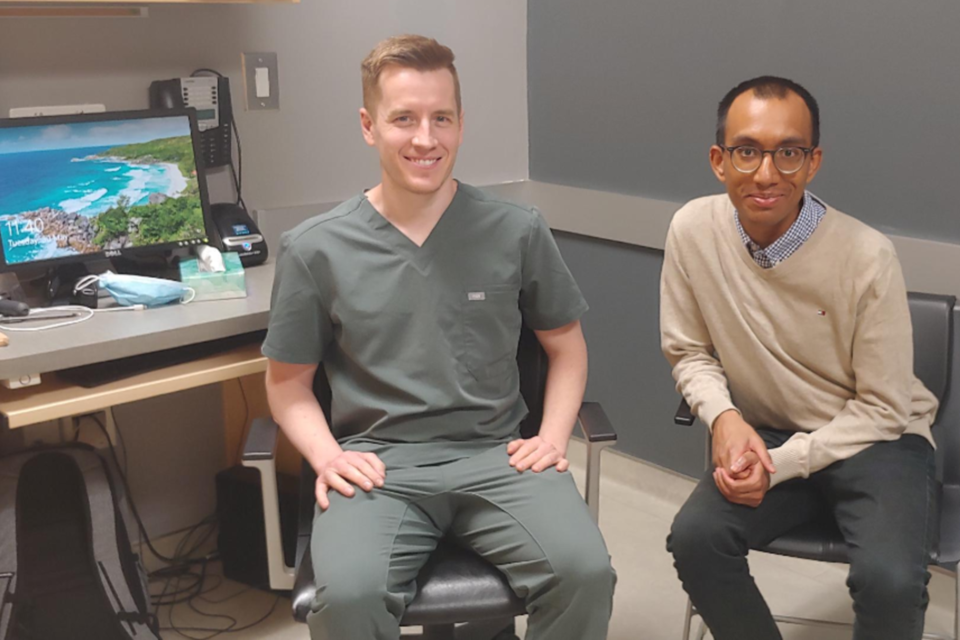As the doctor shortage continues in Waterloo Region and across the province, the City of Cambridge welcomed 10 first-year medical students from Queen’s University this week for a mix of fun and hands-on experience.
Funded in part by the Rural Ontario Medical Program and in partnership with Doctors4Cambridge, the students shadowed family doctors and specialists to get an idea of what practicing in the community is like.
For Donna Gravelle, who serves as a physician recruiter for Doctors4Cambridge, the week provides an opportunity to showcase to students what the city has to offer them upon graduation.
“As they go through their education they have to decide what they want to practice, as well as where they want to practice,” Gravelle said.
“So the more familiar they are with the opportunities out there, the better.”
Gravelle says there are currently two physicians in the city who participated in this program in 2017 and chose to come back to Cambridge to practice, showing that the in-depth visits can produce positive results when it comes to recruitment.
Aside from shadowing family physicians, being at Cambridge Memorial Hospital and participating in a suturing clinic, the students were able to experience what life is like in the city outside of work.
The week started with a tour of Langdon Hall and a canoe trip down the Grand River. They then toured the Gaslight District, had lunch at Foundry Tavern and did a scavenger hunt around the downtown.
Navah Ball and Jaryd Te are two of the first year students who took part in the program and were impressed with what the city had to offer from both a professional and lifestyle perspective.
“We’ve had opportunities within our school to do 'observerships' but that was more on an elective basis,” Ball said.
“It was our first experience being immersed in it for full days. Everybody is very welcoming and kind, you can tell they’re fostering a good patient and physician relationship. They really care about the healthcare workers and the patients are happy with the care they’re getting.”
Te says this experience separates itself from anything he’s ever done due to that hands on approach.
“They’ve given us more freedom to do things,” he said
“That may be because it’s a smaller community.”
Both Ball and Te feel that opportunities away from work will be critical to where they choose to practice when they graduate, making programs like this even more important in the recruitment process.
“The thing on everyone’s mind is work-life balance, so being able to do the things you love outside of work is important,” Ball said.
“For a lot of us that’s being active and getting outside.”
Te echoed his peer's opinion on what’s important in the long run.
“You have to think realistic and think what your life is going to be like on your worst days,” he said.
“If you can imagine yourself in a place where even your worst day is pretty good, that’s what I’m looking for. In Cambridge, as we were discussing with the mayor, the geography, population and the nature is hitting all those points for me.”
No matter where the students' careers take them, Gravelle hopes that their week in Cambridge made a positive impression on what the city has to offer.
“It’s a great community to live in, work in and play in,” she said.
“Even if they spread that to their colleagues, word of mouth is very important. The next few years are when they’re deciding everything. I tell them to keep in touch and I try to touch base with past students.”

